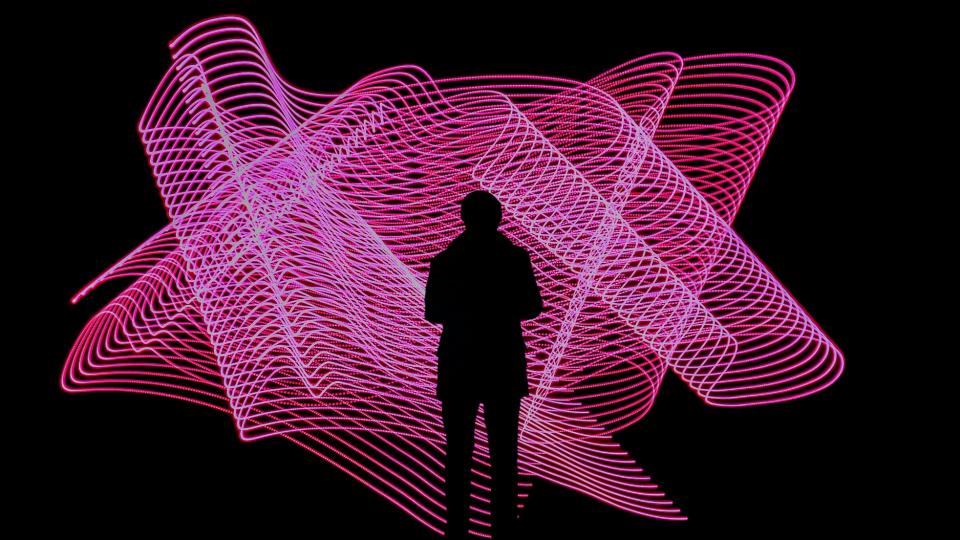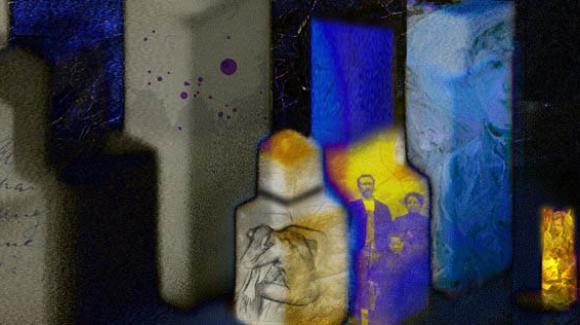
News
Courses at the OdHN: opening of registrations
Published on
18 June 2024
, updated on
18 June 2024
Image

The Digital Humanities Observatory at ENS-PSL offers a range of courses, validated as part of the DENS and the "digital humanities" minor of the Humanities Graduate Program.
Sessions are open to free auditors, without prior authorization.
We invite you to explore the general and specialized training pages for comprehensive information. OdHN offers five courses in particular:
Introduction to digital humanities: texts (semester 1)
Digital humanities brings a set of tools to the field of humanities and social sciences, with the aim of creating new knowledge and facilitating its dissemination, analysis and archiving, using computer-based technologies. They also constitute a trans-discipline and a research community, which will be examined from a critical angle.
ENS-PSL's Observatoire des humanités numériques offers an introductory course at two levels. In the first semester, the introductory digital humanities course will focus on text analysis.
Practical information :
Validation: assessment will be based on active participation in the activities and practical work proposed. It is possible to attend classes as an auditor.
Classes take place on Mondays, from 4 pm to 6 pm, at 45 rue d'Ulm, in the conference room of the Centre Sciences des Données (staircase B, 3rd floor).
Sessions: September 30, October 4, October 28, November 25, December 9, 2024 and January 20, 2025.
Registration: please write to lea.saint-raymond@ens.psl.e for course validation. Auditors are welcome without prior authorization.
Introduction to digital humanities: mass data analysis (Semester 2)
The second level of the Introduction to Digital Humanities course, this course - which does not require validation of level 1 - introduces students to digital tools and computational data analysis. No prior knowledge is required. The aim of these courses is to provide a solid grounding in programming and corpus visualization. They promote the appropriation of languages and techniques and ultimately enable students to be autonomous when it comes to digitally producing and processing data.
Practical information :
Validation: attendance and technical achievement using one of the tools covered during the semester (creating Dublin Core records, transcribing and encoding a manuscript, creating an interactive map, etc.).
Classes take place on Mondays, from 4 pm to 6 pm at 45 rue d'Ulm, in the conference room of the Centre Sciences des Données (staircase B, 3rd floor).
Sessions: February 3, February 17, March 10, March 24, April 7 and May 5, 2025.
Registration: please write to lea.saint-raymond@ens.psl.eu for course validation. Auditors are welcome without prior authorization.
Image

From humanities research corpus to digital project
How to build a research corpus and enhance its value in a digital environment? Based on existing ENS-PSL projects - Archives normaliennes, DatArt, ... - or personal projects (Master's, PhD), this course will introduce students to all the stages of a collaborative research project in digital humanities, from building a corpus to exploring, editing and final publication.
Practical information
Sessions take place at 45 rue d'Ulm, in the conference room of the Centre Sciences des Données (staircase B, 3rd floor).
Registration: please write to lea.saint-raymond@ens.psl.eu
Validation: active participation in the research project. The first working session will take place on September 30, 2024, from 4pm to 6pm. Other group sessions will be scheduled according to availability, and individual follow-up meetings will be organized on a one-to-one basis.
Quantitative surveys: a toolbox for the social sciences
Valid as part of the DENS and the "digital humanities" minor of the Humanities graduate program: 6 ECTS (Semester 1). Option to attend as an auditor.
Sessions: Mondays, 3 pm to 6 pm, in the conference room of the Centre de Sciences de données (ENS-PSL, 45 rue d'Ulm, at the top of staircase B or C): September 16, September 23, October 7, October 21, November 4, November 18, December 2 and December 16, 2024.
This course offers an introduction to various quantitative methods based on social science surveys. Each session is organized around the encounter between a question (sociological, anthropological, historiographical), data and a method: mapping, dimensionality reduction, partitioning, sequence analysis, textual analysis, Bayesian statistics. The aim of the course is to provide a schematic understanding of how these methods are implemented, their merits and limitations. How can spatial data and temporal sequences be represented? What do Bayesian statistics offer that the frequentist approach lacks? How can we analyze the morpho-syntactic properties of a text? How can we move from a large number of variables to a small number of classes? These questions will be posed in context, in a dynamic of adjustment between data, method and research question (a dynamic of inquiry).
Prerequisites: programming issues will be covered only in outline, no experience in this field is required.
Validation requirements: students must submit a four-page document applying one of the methods discovered in class to their own data: presentation of the data, interest of the method, implementation and interpretation. Those with no programming experience will be assisted with the implementation.
Course coordinator: Théo Boulakia: theo.boulakia@ens.psl.eu
Of numbers and letters: computational language analysis for the study of texts
Valid as part of the DENS and "digital humanities" minor of the Humanities graduate program: 6 ECTS (Semester 2). Also part of the Literatures and Language department.
Whether they are dedicated to simple tasks such as identifying lexis, syntactic phenomena or particular rhythms, or whether they venture to identify the major themes of a text, the stylistic idiosyncrasies of an author, or the narrative structures of a work, so-called "automatic language processing" tools are playing an increasingly important role in contemporary literary studies. What are the main contributions of these computational approaches? When should we integrate (or not!) these methods into our work? How should we use them? These are the questions this course will address, exploring both theoretically and practically the possibilities offered by these tools, their results, and their limits.
Prerequisites: The course does not presuppose any mathematical or computer knowledge.
Validation requirements: attendance and mini-thesis using one or more of the tools covered during the semester.
Course coordinator: Florian Cafiero : florian.cafiero@columbia.edu



Be the first to review this item, please login or register.
Sign-inRegister